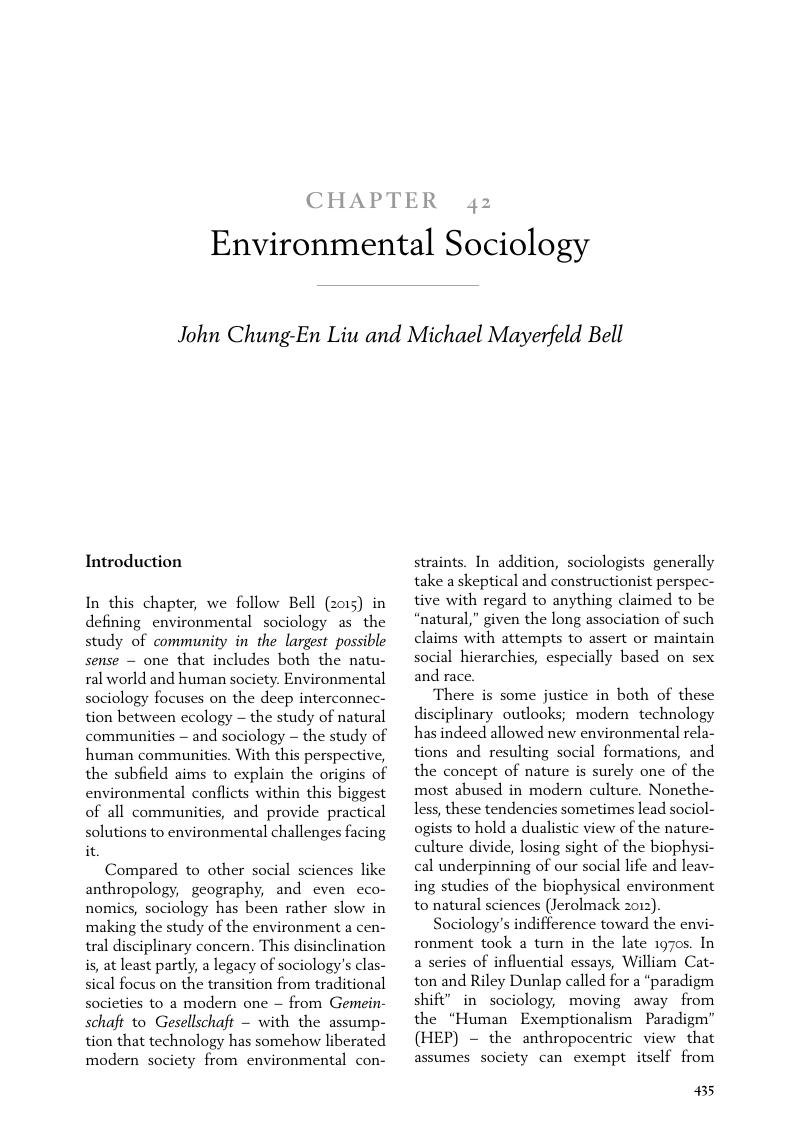Book contents
- The Cambridge Handbook of Sociology
- The Cambridge Handbook of Sociology
- Copyright page
- Contents
- Figures
- Tables
- Contributors
- Introduction
- Part I The Development of Sociology
- Part II Sociological Theory
- Part III Sociological Research Methods
- Part IV Culture and Socialization
- Part V Social Structure and the Organization of Society
- Part VI Social Inequality and Diversity
- Part VII Social Institutions
- Part VIII Social Problems and Deviant Behavior
- Part IX Locality, Geography, and the Environment
- Chapter 42 Environmental Sociology
- Chapter 43 Rural Sociology
- Chapter 44 Urban Sociology
- Chapter 45 Sociology of Migration
- Chapter 46 Global Sociology
- Part X Social Change
- Index
- References
Chapter 42 - Environmental Sociology
from Part IX - Locality, Geography, and the Environment
Published online by Cambridge University Press: 21 September 2017
- The Cambridge Handbook of Sociology
- The Cambridge Handbook of Sociology
- Copyright page
- Contents
- Figures
- Tables
- Contributors
- Introduction
- Part I The Development of Sociology
- Part II Sociological Theory
- Part III Sociological Research Methods
- Part IV Culture and Socialization
- Part V Social Structure and the Organization of Society
- Part VI Social Inequality and Diversity
- Part VII Social Institutions
- Part VIII Social Problems and Deviant Behavior
- Part IX Locality, Geography, and the Environment
- Chapter 42 Environmental Sociology
- Chapter 43 Rural Sociology
- Chapter 44 Urban Sociology
- Chapter 45 Sociology of Migration
- Chapter 46 Global Sociology
- Part X Social Change
- Index
- References
Summary

- Type
- Chapter
- Information
- The Cambridge Handbook of SociologyCore Areas in Sociology and the Development of the Discipline, pp. 433 - 434Publisher: Cambridge University PressPrint publication year: 2017

